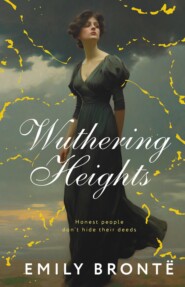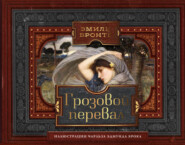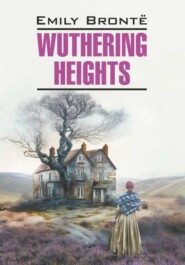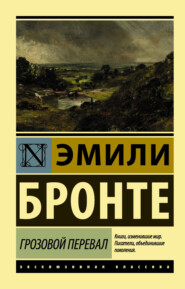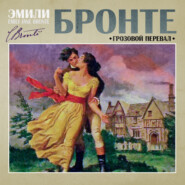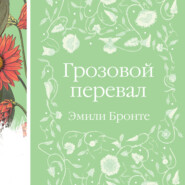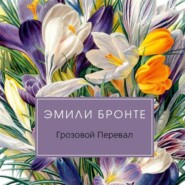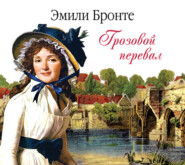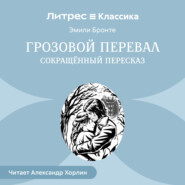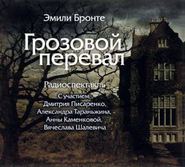По всем вопросам обращайтесь на: info@litportal.ru
(©) 2003-2024.
✖
Poems by Currer, Ellis, and Acton Bell
Настройки чтения
Размер шрифта
Высота строк
Поля
To play them never more."
I answered – and it was enough;
They turned them to depart;
They could not read my secret thoughts,
Nor see my throbbing heart.
I've noticed many a youthful form,
Upon whose changeful face
The inmost workings of the soul
The gazer well might trace;
The speaking eye, the changing lip,
The ready blushing cheek,
The smiling, or beclouded brow,
Their different feelings speak.
But, thank God! you might gaze on mine
For hours, and never know
The secret changes of my soul
From joy to keenest woe.
Last night, as we sat round the fire
Conversing merrily,
We heard, without, approaching steps
Of one well known to me!
There was no trembling in my voice,
No blush upon my cheek,
No lustrous sparkle in my eyes,
Of hope, or joy, to speak;
But, oh! my spirit burned within,
My heart beat full and fast!
He came not nigh – he went away —
And then my joy was past.
And yet my comrades marked it not:
My voice was still the same;
They saw me smile, and o'er my face
No signs of sadness came.
They little knew my hidden thoughts;
And they will NEVER know
The aching anguish of my heart,
The bitter burning woe!
FLUCTUATIONS,
What though the Sun had left my sky;
To save me from despair
The blessed Moon arose on high,
And shone serenely there.
I watched her, with a tearful gaze,
Rise slowly o'er the hill,
While through the dim horizon's haze
Her light gleamed faint and chill.
I thought such wan and lifeless beams
Could ne'er my heart repay
For the bright sun's most transient gleams
That cheered me through the day:
But, as above that mist's control
She rose, and brighter shone,
I felt her light upon my soul;
But now – that light is gone!
Thick vapours snatched her from my sight,
And I was darkling left,
All in the cold and gloomy night,
Of light and hope bereft:
Until, methought, a little star
Shone forth with trembling ray,
To cheer me with its light afar —
But that, too, passed away.
Anon, an earthly meteor blazed
The gloomy darkness through;
I smiled, yet trembled while I gazed —
But that soon vanished too!
And darker, drearier fell the night
Upon my spirit then; —
But what is that faint struggling light?
Is it the Moon again?
Kind Heaven! increase that silvery gleam
And bid these clouds depart,
And let her soft celestial beam
Restore my fainting heart!
SELECTIONS FROM THE LITERARY REMAINS OF ELLIS AND ACTON BELL
By Currer Bell
SELECTIONS FROM POEMS BY ELLIS BELL
It would not have been difficult to compile a volume out of the papers left by my sisters, had I, in making the selection, dismissed from my consideration the scruples and the wishes of those whose written thoughts these papers held. But this was impossible: an influence, stronger than could be exercised by any motive of expediency, necessarily regulated the selection. I have, then, culled from the mass only a little poem here and there. The whole makes but a tiny nosegay, and the colour and perfume of the flowers are not such as fit them for festal uses.
It has been already said that my sisters wrote much in childhood and girlhood. Usually, it seems a sort of injustice to expose in print the crude thoughts of the unripe mind, the rude efforts of the unpractised hand; yet I venture to give three little poems of my sister Emily's, written in her sixteenth year, because they illustrate a point in her character.
At that period she was sent to school. Her previous life, with the exception of a single half-year, had been passed in the absolute retirement of a village parsonage, amongst the hills bordering Yorkshire and Lancashire. The scenery of these hills is not grand – it is not romantic it is scarcely striking. Long low moors, dark with heath, shut in little valleys, where a stream waters, here and there, a fringe of stunted copse. Mills and scattered cottages chase romance from these valleys; it is only higher up, deep in amongst the ridges of the moors, that Imagination can find rest for the sole of her foot: and even if she finds it there, she must be a solitude-loving raven – no gentle dove. If she demand beauty to inspire her, she must bring it inborn: these moors are too stern to yield any product so delicate. The eye of the gazer must ITSELF brim with a "purple light," intense enough to perpetuate the brief flower-flush of August on the heather, or the rare sunset-smile of June; out of his heart must well the freshness, that in latter spring and early summer brightens the bracken, nurtures the moss, and cherishes the starry flowers that spangle for a few weeks the pasture of the moor-sheep. Unless that light and freshness are innate and self-sustained, the drear prospect of a Yorkshire moor will be found as barren of poetic as of agricultural interest: where the love of wild nature is strong, the locality will perhaps be clung to with the more passionate constancy, because from the hill-lover's self comes half its charm.
I answered – and it was enough;
They turned them to depart;
They could not read my secret thoughts,
Nor see my throbbing heart.
I've noticed many a youthful form,
Upon whose changeful face
The inmost workings of the soul
The gazer well might trace;
The speaking eye, the changing lip,
The ready blushing cheek,
The smiling, or beclouded brow,
Their different feelings speak.
But, thank God! you might gaze on mine
For hours, and never know
The secret changes of my soul
From joy to keenest woe.
Last night, as we sat round the fire
Conversing merrily,
We heard, without, approaching steps
Of one well known to me!
There was no trembling in my voice,
No blush upon my cheek,
No lustrous sparkle in my eyes,
Of hope, or joy, to speak;
But, oh! my spirit burned within,
My heart beat full and fast!
He came not nigh – he went away —
And then my joy was past.
And yet my comrades marked it not:
My voice was still the same;
They saw me smile, and o'er my face
No signs of sadness came.
They little knew my hidden thoughts;
And they will NEVER know
The aching anguish of my heart,
The bitter burning woe!
FLUCTUATIONS,
What though the Sun had left my sky;
To save me from despair
The blessed Moon arose on high,
And shone serenely there.
I watched her, with a tearful gaze,
Rise slowly o'er the hill,
While through the dim horizon's haze
Her light gleamed faint and chill.
I thought such wan and lifeless beams
Could ne'er my heart repay
For the bright sun's most transient gleams
That cheered me through the day:
But, as above that mist's control
She rose, and brighter shone,
I felt her light upon my soul;
But now – that light is gone!
Thick vapours snatched her from my sight,
And I was darkling left,
All in the cold and gloomy night,
Of light and hope bereft:
Until, methought, a little star
Shone forth with trembling ray,
To cheer me with its light afar —
But that, too, passed away.
Anon, an earthly meteor blazed
The gloomy darkness through;
I smiled, yet trembled while I gazed —
But that soon vanished too!
And darker, drearier fell the night
Upon my spirit then; —
But what is that faint struggling light?
Is it the Moon again?
Kind Heaven! increase that silvery gleam
And bid these clouds depart,
And let her soft celestial beam
Restore my fainting heart!
SELECTIONS FROM THE LITERARY REMAINS OF ELLIS AND ACTON BELL
By Currer Bell
SELECTIONS FROM POEMS BY ELLIS BELL
It would not have been difficult to compile a volume out of the papers left by my sisters, had I, in making the selection, dismissed from my consideration the scruples and the wishes of those whose written thoughts these papers held. But this was impossible: an influence, stronger than could be exercised by any motive of expediency, necessarily regulated the selection. I have, then, culled from the mass only a little poem here and there. The whole makes but a tiny nosegay, and the colour and perfume of the flowers are not such as fit them for festal uses.
It has been already said that my sisters wrote much in childhood and girlhood. Usually, it seems a sort of injustice to expose in print the crude thoughts of the unripe mind, the rude efforts of the unpractised hand; yet I venture to give three little poems of my sister Emily's, written in her sixteenth year, because they illustrate a point in her character.
At that period she was sent to school. Her previous life, with the exception of a single half-year, had been passed in the absolute retirement of a village parsonage, amongst the hills bordering Yorkshire and Lancashire. The scenery of these hills is not grand – it is not romantic it is scarcely striking. Long low moors, dark with heath, shut in little valleys, where a stream waters, here and there, a fringe of stunted copse. Mills and scattered cottages chase romance from these valleys; it is only higher up, deep in amongst the ridges of the moors, that Imagination can find rest for the sole of her foot: and even if she finds it there, she must be a solitude-loving raven – no gentle dove. If she demand beauty to inspire her, she must bring it inborn: these moors are too stern to yield any product so delicate. The eye of the gazer must ITSELF brim with a "purple light," intense enough to perpetuate the brief flower-flush of August on the heather, or the rare sunset-smile of June; out of his heart must well the freshness, that in latter spring and early summer brightens the bracken, nurtures the moss, and cherishes the starry flowers that spangle for a few weeks the pasture of the moor-sheep. Unless that light and freshness are innate and self-sustained, the drear prospect of a Yorkshire moor will be found as barren of poetic as of agricultural interest: where the love of wild nature is strong, the locality will perhaps be clung to with the more passionate constancy, because from the hill-lover's self comes half its charm.







